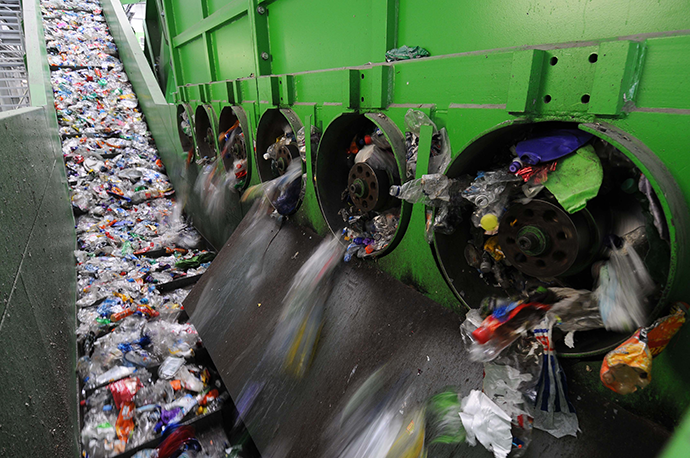 Closed Loop Recycling’s CEO, Chris Dow – part of the Ambassador Programme for RWM in partnership with CIWM – says there is a real need for a reformed PRN system
Closed Loop Recycling’s CEO, Chris Dow – part of the Ambassador Programme for RWM in partnership with CIWM – says there is a real need for a reformed PRN system
CIWM Journal Online Exclusive

Despite being less than a decade old, the UK plastic bottle recycling industry has witnessed significant change over the past few years, becoming more sophisticated in terms of both technologies and the packaging waste recovery supply chain itself, Landfill Tax reaching new levels and the introduction of new legislation in the form of the Waste Framework Directive.
However, whilst recycled milk and water bottles should be a massive win for the circular economy, certain aspects of the current legislative framework needs review in order for us to grow green jobs, drive investment and continue to build the infrastructure that is required to achieve the government’s own recycling targets and ultimately, to achieve the best environmental outcome possible.
At the heart of all this is the PRN system which was originally created to increase recovery rates and develop UK infrastructure. However, what has transpired is a system that disadvantages domestic players and advantages the export of plastic bottles.
The knock-on effect is that investment is not taking place in the UK market, there is scarcity of supply for UK reprocessors and we have become too heavily reliant on unstable overseas markets. You only have to look at recent PRN price volatility to see this is the case. What is needed is a long-term vision on packaging compliance, including appropriate reform of the PRN system, to ensure UK industry deals with recycled materials in the right way and maximises the opportunity both for the economy and the environment. So what should a review of the PRN system look like and what benefits would it bring?
It’s Being Starved
The current unfair advantage of exporting plastic bottles has meant the recycling and waste industry is being starved of resource (bottles) and therefore investment – currently more than 50% of materials are exported and this material is being subsidised by PRN. For growth we need a sustainable supply of waste plastic in order to maintain stability and attract investment. And on top of this we also need greater enforcement against illegal exports as law abiding operators are currently disadvantaged.
 PRN reform should address the disadvantage currently experienced by UK re-processors, levelling the playing field and supporting the original aims of the system to increase recovery rates and develop UK infrastructure.
PRN reform should address the disadvantage currently experienced by UK re-processors, levelling the playing field and supporting the original aims of the system to increase recovery rates and develop UK infrastructure.
Other benefits of a review would also include: reduction of national carbon footprint, reduction of landfill pollution and greenhouse gases, assurance of UK sorting with minimum safety standards and working conditions, responsible disposal of residue materials, facilitation of Environment Agency enforcement, the driving up of recycling rates and incentivising the use of recycled content in packaging.
We would like to see a solution that splits the requirement for compliance between PRNs and PeRNs whereby over a number of years domestic recyclers are producing more PRNs and fewer PeRNs are generated for exports. This would lead to a reduction in PRN price volatility, with long run compliance costs reduced, but the total cost of compliance would remain the same. Funds would be driven towards the development of infrastructure and therefore the creation of thousands of green jobs.
If we can provide economic drivers via a reformed PRN system to reprocess these valuable resources in the UK rather than being exported abroad for recycling, we can then work to influence recycling behaviour across the supply chain, from consumers to brands, in order to increase collection rates.
With only a year to go until the General Election, we believe that we now should move to a cross departmental consultation to move the PRN issue towards a solution, with the ultimate aim of achieving the best environmental outcome from plastic bottles.
Chris Dow is the CEO of Closed Loop Recycling. An Australian entrepreneur, he came to the UK in 2004 when closed loop recycling infrastructure was almost non-existent. And he is, of course, an ambassador for RWM in Partnership With CIWM.
